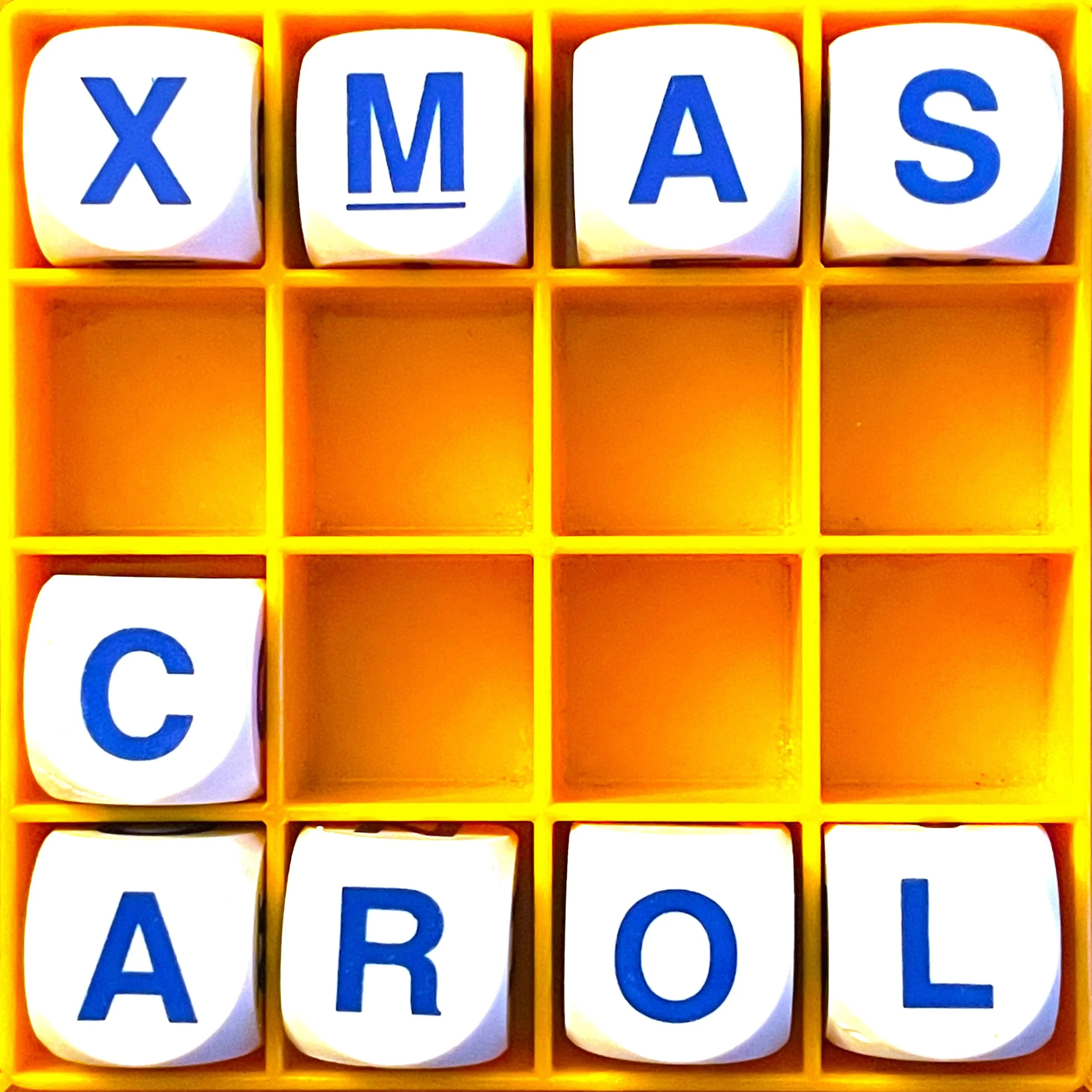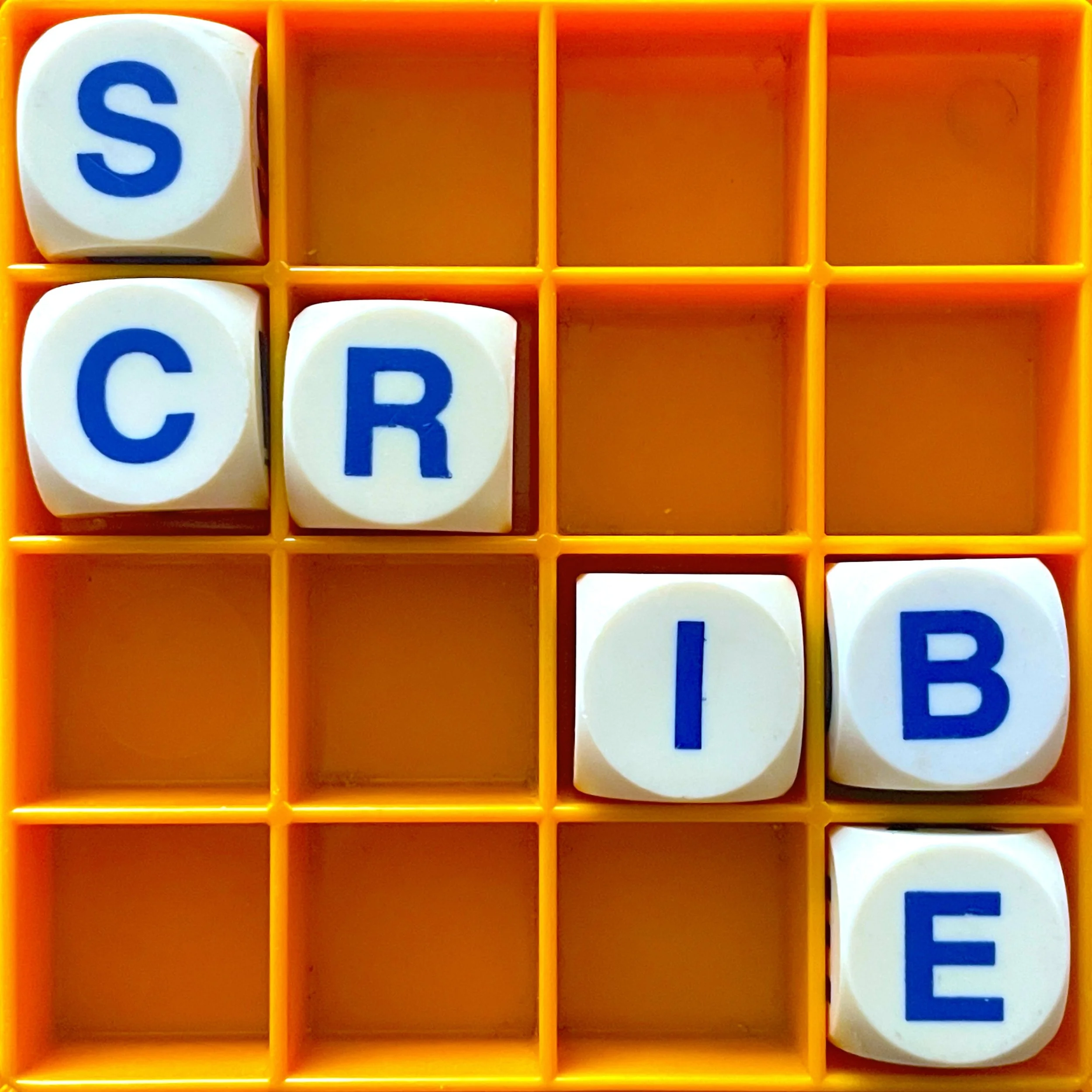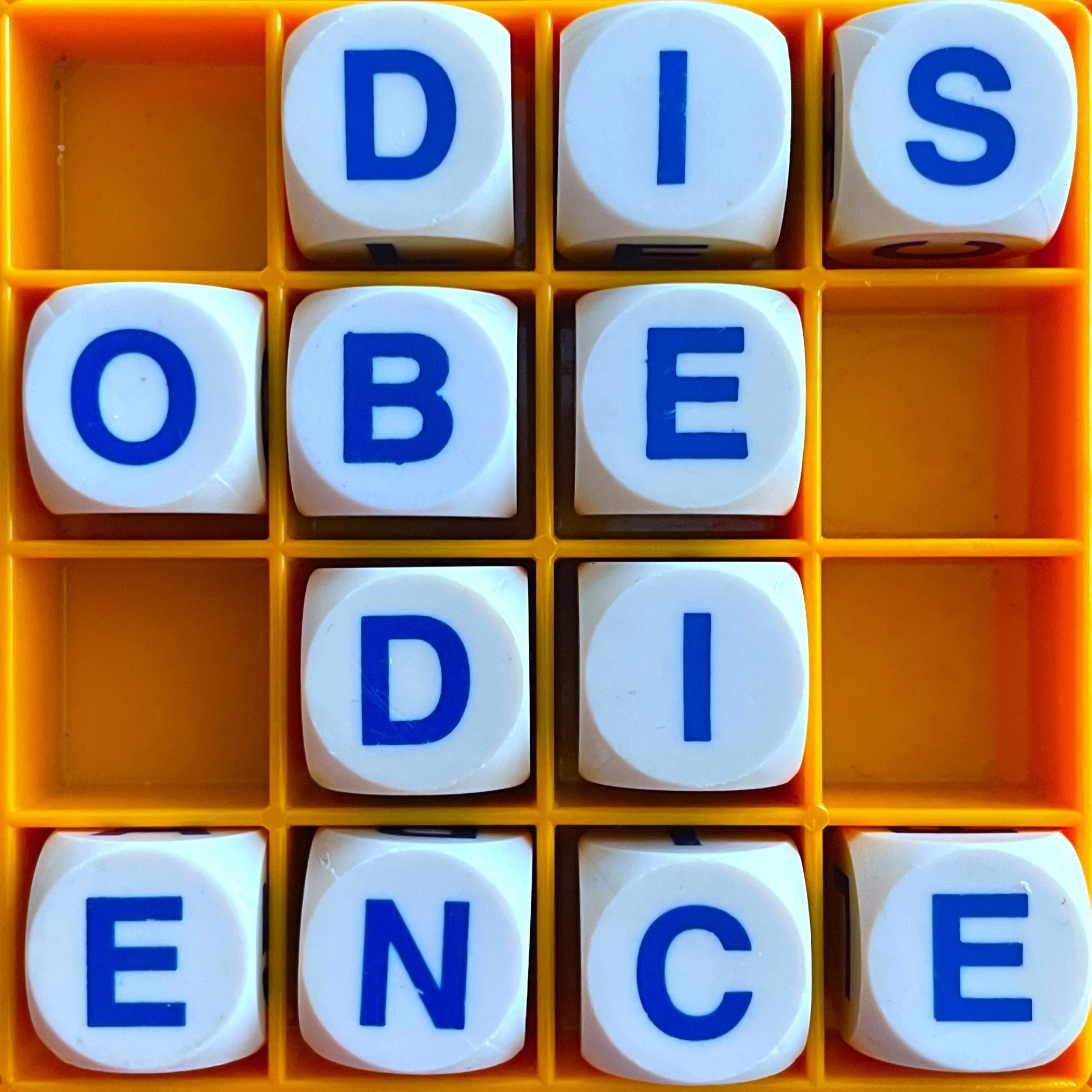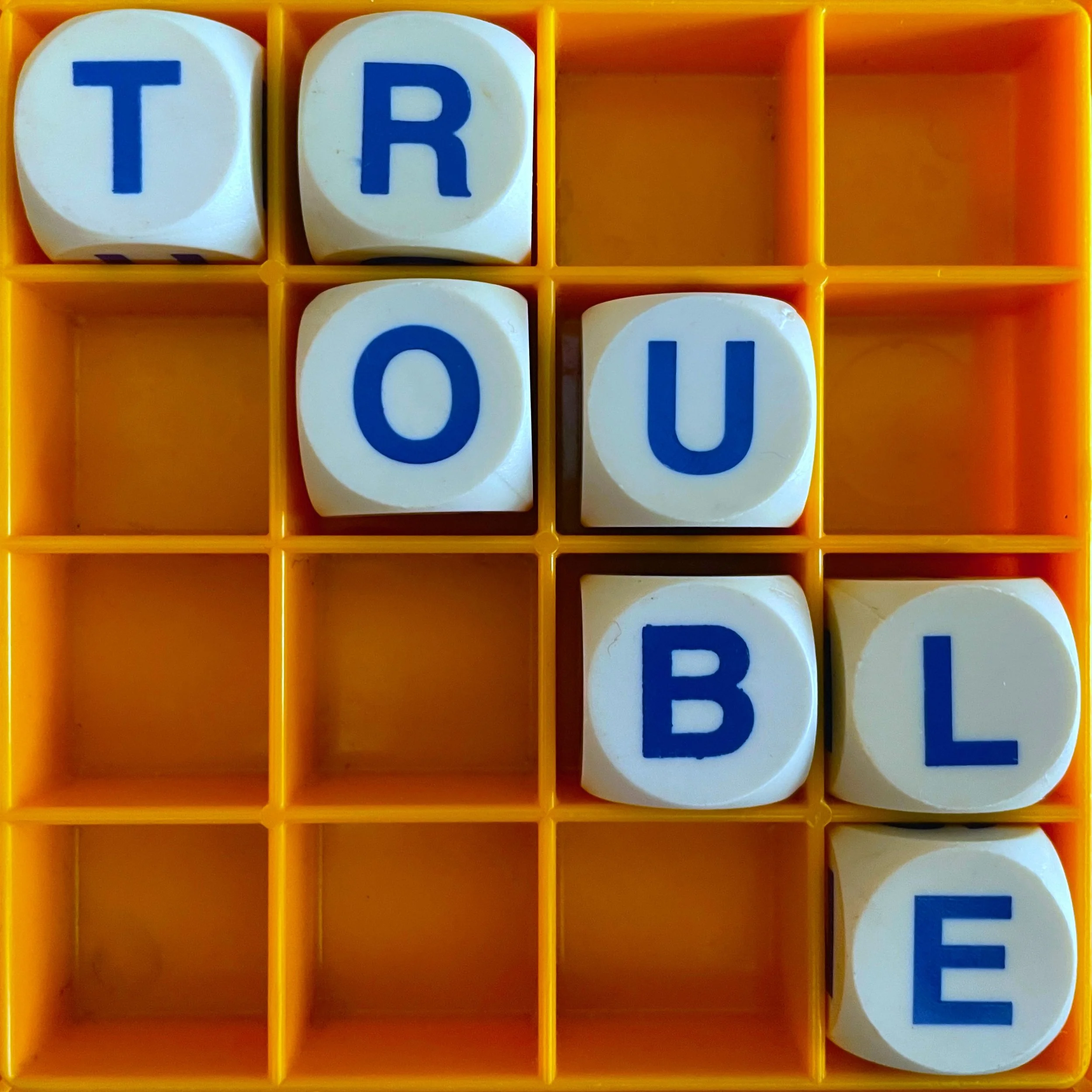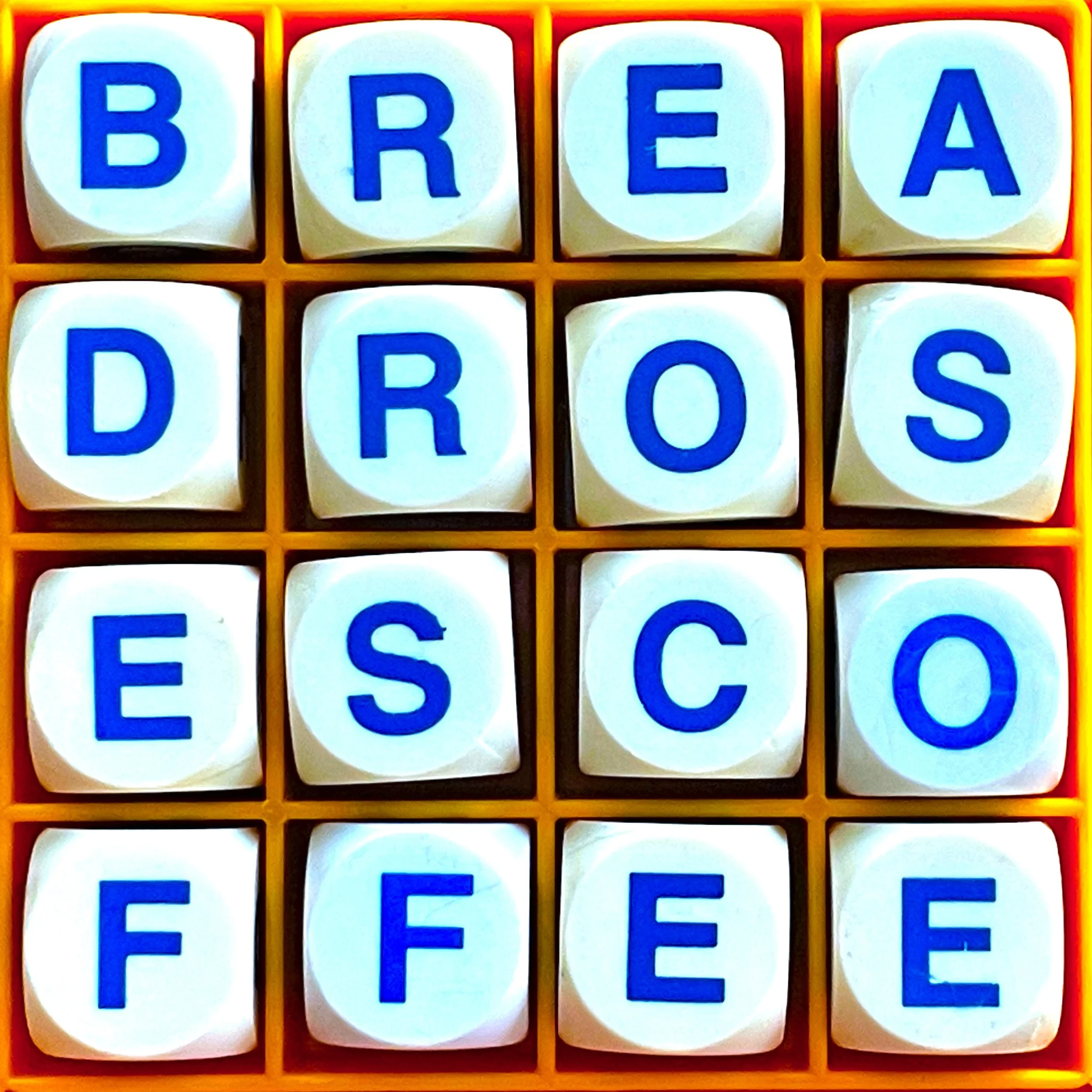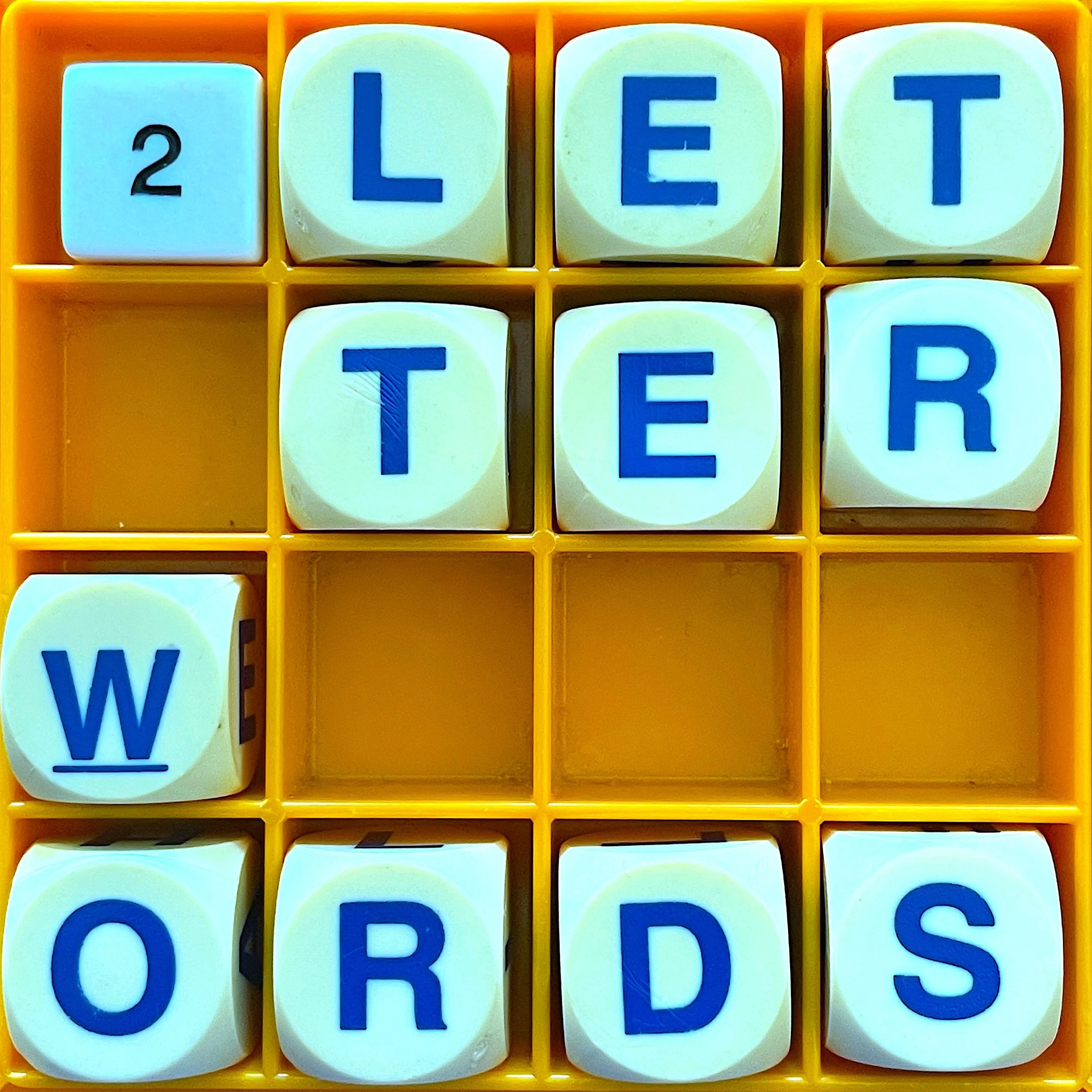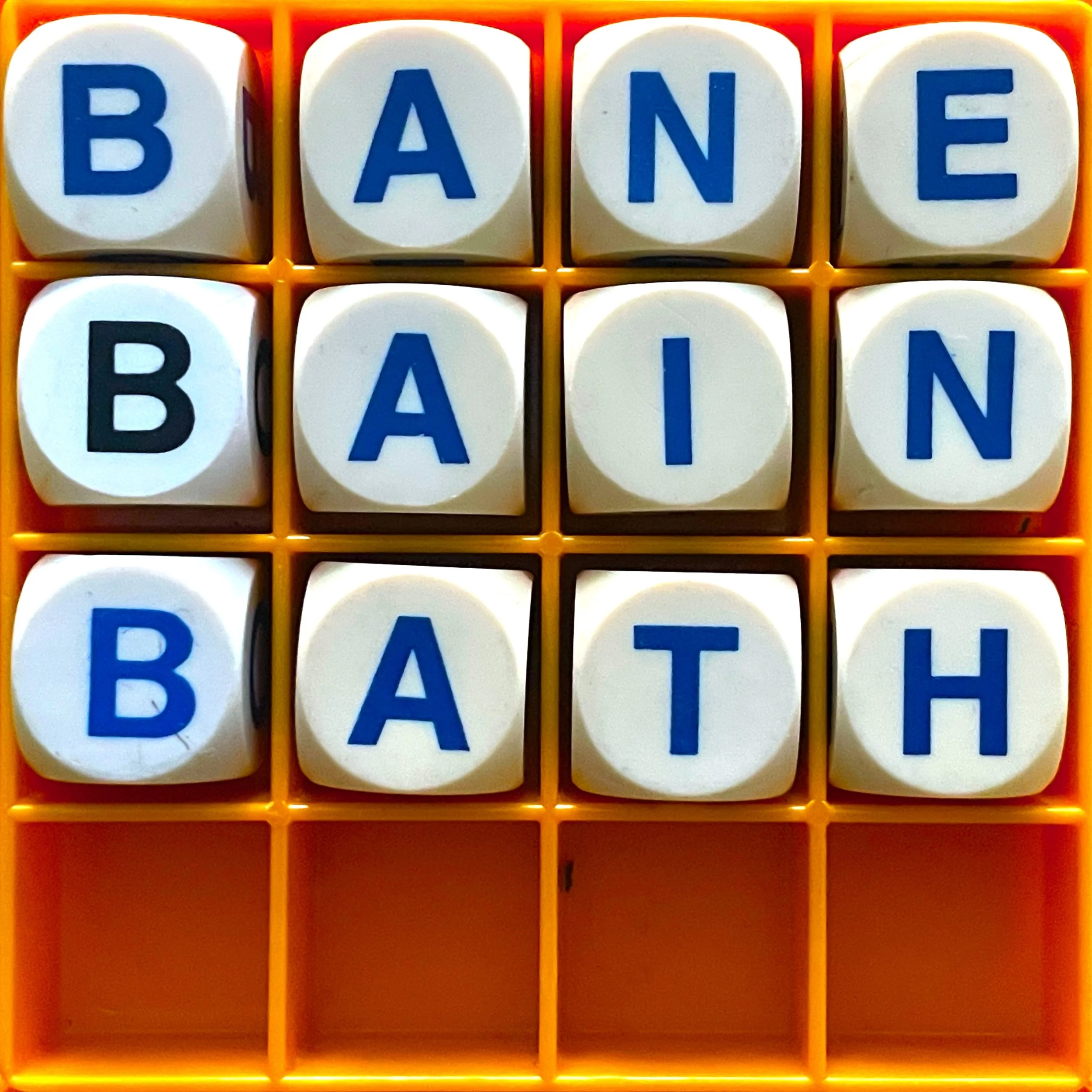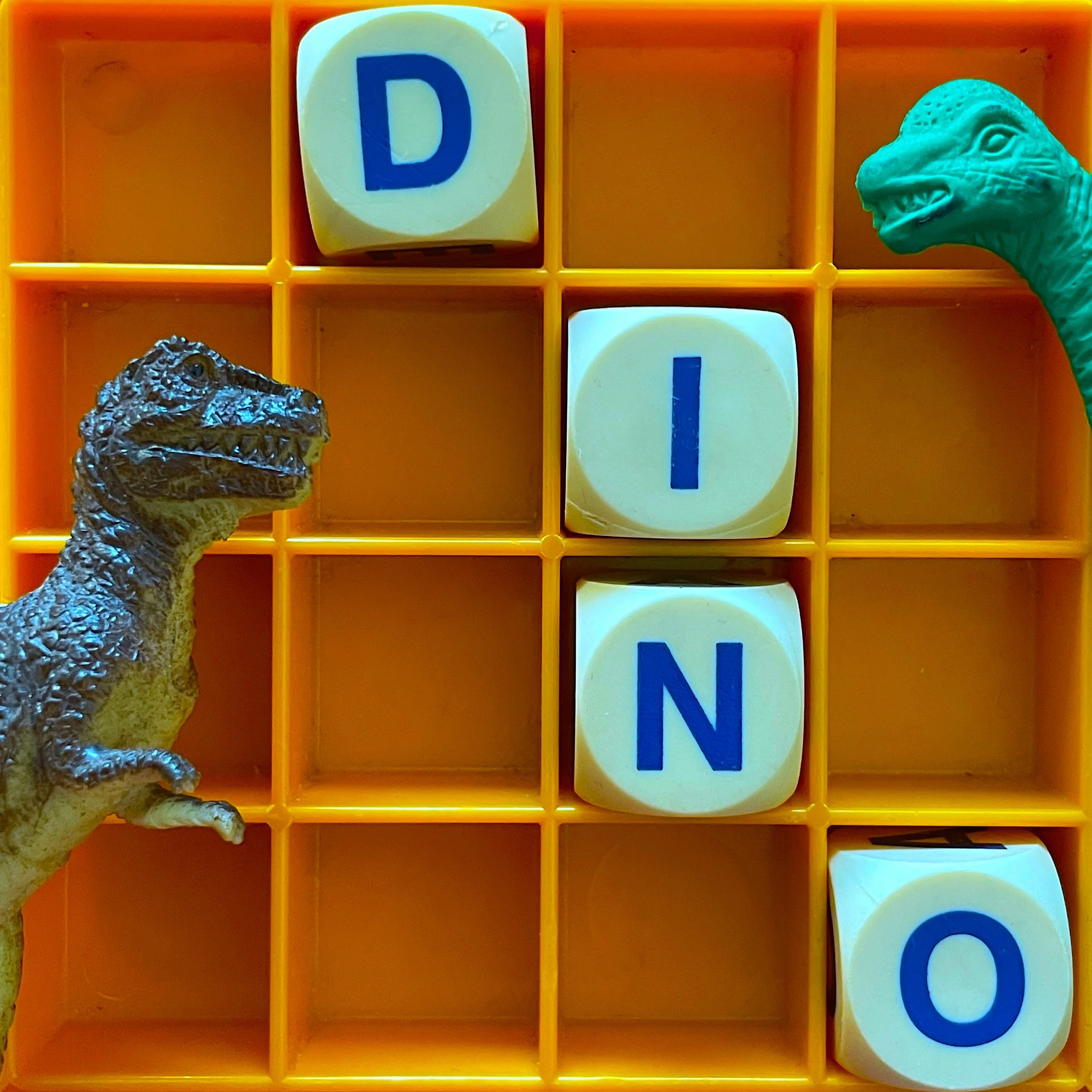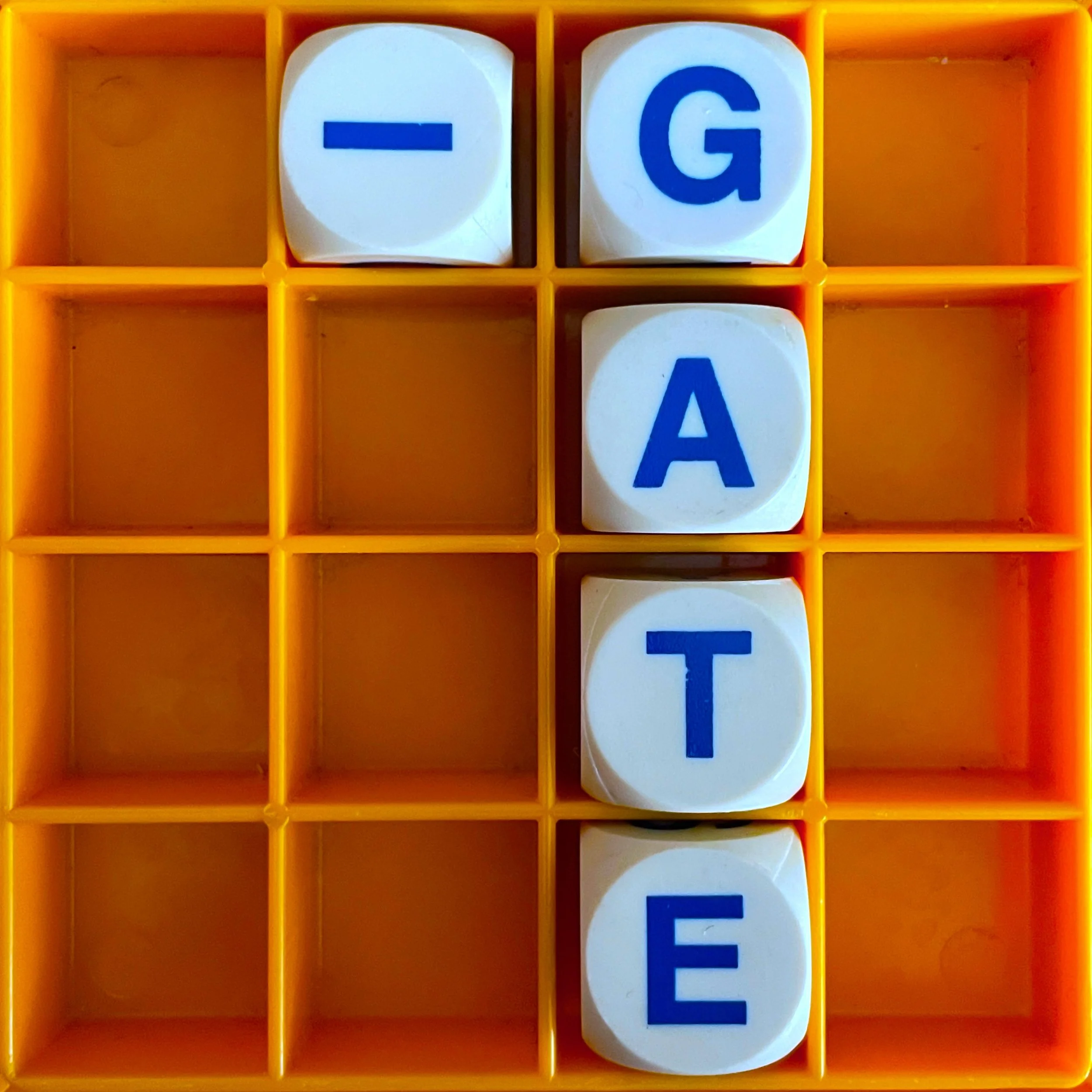warning for GHOSTS
Read moreAllusionist 221. Scribe transcript
TIM BROOKES: I've interviewed dozens of people whose experience of being taught to write was, at best, tedious and perplexing, and at worst brutal.
So literally about six weeks ago, maybe, I asked myself the question: when did I first enjoy the act of writing? And I don't mean enjoy writing as in enjoy writing a piece of journalism or enjoy writing a short story - I mean the actual physical act of writing. And in my case, the answer is July.
HZ: July 2025?
TIM BROOKES: Exactly.
HZ: Gosh. So you were already deep into writing this very book, several books into your writing career.
TIM BROOKES: That's right. And in fact, when I then went and asked people that question, many of them just stared at me because it had never occurred to them that it was something you enjoy.
Read moreAllusionist 220. Disobedience transcript
SO MAYER: Being perceived, being heard: we often think about the painful aspect of that as being misheard, being criticised, being deliberately misunderstood, being shouted down. And I've experienced all those things, of course I have. But the possibility of actually being heard is equally as painful. Because it also asks what would be the result of that, that if someone said, "Okay. I've taken on what your book is saying. What now? Back to you." And that's what a good therapist does: "I've heard you. Now what are you gonna do about it?" And then going: oh, supposedly through my educational privilege, I've been taught to take power from using language. And here I am using language and I don't feel powerful. I feel afraid and I feel ashamed, and I feel like someone's gonna hit me in the mouth.
Read moreAllusionist 219. Making Trouble transcript
MOLLY NAYLOR: I don't like to compliment my guests or talk about how brilliant they are.
HZ: That's fine. That means I don't have to rebuff your compliments in that kind of, “Oh no, praise! I feed on it, but also, I don't know how to handle it!” We won't have to do that.
MOLLY NAYLOR: Yeah, I hate to receive it. And if I didn't receive it, I would die.
HZ: Who are we? We're uninflated balloons. Not just uninflated, balloons that had been previously inflated and had deflated.
MOLLY NAYLOR: Left over at the kids party. Shrivelled. That's what we are. Great.
Read moreAllusionist 218. Banned Books transcript
SAM HELMICK: Censorship is a hammer looking for a nail, my friends. And someday, you will be that nail too, unless we all decide that we're going to unite against book bans today.
Read moreAllusionist 217. Bread and Roses, and Coffee transcript
I was really interested in what were the stakes of calling your restaurant feminist? What were you holding yourself accountable to? What were you trying to signal to potential customers? What were you trying to say to staff and so forth?
HZ: What were the consequences? Because there were a lot of like upsides and downsides to having 'feminist' in the restaurant's name.
ALEX KETCHUM: Yeah, for sure. Some of the upsides were that you were signalling to other likeminded folks or curious folks that this could be a space for them to gather. There was an indication of the politics of the space. So it was an indication of what kind of events you might find, speakers you might find, artwork and music you might see and hear in the space.
There were also ways that people might feel more invested in the space, that they might contribute time or money or energy, or be just interested in visiting. Calling it a feminist space oftentimes was also one of the many code words, during the 1970s and 1980s, to also signal lesbian space or questioning space; or a term we might use today, but would be anachronistic at the time, as kind of like a queer women's space. So, this was a way of marking like, "Hey, you might be welcome here, your sexual orientation might be accepted, you might hear a poet you're interested in hearing," and so forth. So, there were a lot of kind of benefits in building community and interest in the space by indicating the term.
And then the downsides could also be, you know, there's bias against the word 'feminism'. Some people would feel uncomfortable with it or push back on it. There was also a concern from many of the people who founded these spaces that they might be targeted for violence. They might get rocks through the windows and so forth. Generally, that wasn't the case with a few exceptions, but there was also kind of a heightened level of fear in choosing to mark your space so explicitly.
Allusionist 216. Four Letter Words: Terisk
Listen to this episode and find out more about the topics therein at theallusionist.org/terisk
This is the Allusionist, in which I, Helen Zaltzman, hit language’s snooze button and language screams back, “I will not be snoozed!”
It’s the season finale of Four Letter Word Season, and I’m sad not to have covered every four-letter word in existence, but I’ve had a great time, beginning with the F-swear and going via dinosaurs, poisonous plants, the bain marie, a quiz, the scandal suffix -gate, to several local parks; and this episode returns to one of the strongest of the four-letter words we have covered, because there is still more to say about it.
Content note: this episode contains many category A swears, and some category B swears - it’s all educational though, not gratuitous or angry swearing, I promise. And sometimes I hear from listeners asking about the swear categories; you can hear all about them back in the early episode Detonating the C-Bomb, which also contains information that is related to this episode.
I’ll be performing at Nerd Nite at the Fox Cabaret in Vancouver on 10 September; I’ve linked to tickets at theallusionist.org/events and it’s a new piece about some mysterious Scandinavian translations of Dracula. I’ve been to Nerd Nite before and it was a very good evening of infotainment, I recommend.
Now, as I said, brace yourself for swears.
On with the show.
HZ: In the Allusioverse Discord community, we sometimes watch films and TV together, and a little while ago we were watching Legally Blonde, the tale of rich young white woman Elle Woods overcoming the adversity of being too femme-presenting for people to believe she could possibly study law.
And as we were watching Legally Blonde, we noticed something happening repeatedly in the subtitles. Three letters kept being asterisked out. Lines like:
“Actually, I wasn’t aware we had an ***ignment”
“You will get to ***ist on actual cases”
Again and again and again!
“This is Emmett Richmond, another ***ociate”
“We already ***igned the outlines”
“Equitable division of ***ets”
Did you deduce the missing word here?
The words spoken aloud were not bleeped out or blanked out or censored at all, so measures had been taken just to protect people who read the subtitles from the word ‘ass’. Which is not good subtitling practice. For added perplexingness, while the Legally Blonde subtitles had censored words like ‘associate’ and ‘asset’, words left intact included some slurs, as well as ‘dumbass’, and ‘ass’.
I don’t understand these priorities! But I do understand that this is an example of what is known as the Scunthorpe Problem.
The Scunthorpe Problem is a technological problem whereby content gets blocked or censored because a string of letters, an innocent string of letters, contains what would be, in other contexts, a rude word.
The reason this happens is at some point, some human has compiled a blocklist of words that, in their whole form, might be a problem: slurs, swears, that kind of thing. But of course language isn’t that simple, or at least the English language isn’t, you can’t spell ‘Scunthorpe’ without ‘Shorpe’, and programmers can’t program for every possible context every word might appear in. And the programs themselves don’t know what words are rude and what’s not, and moreover they don’t care, they’re not sentient.
The Scunthorpe Problem occurs a lot. For example, in 2020 alone, Twitter blocked hashtags about the British political troll Dominic Cummings, and Facebook kept banning users for posting about spending time at the seafront park in the southern England town of Plymouth that is called the Hoe. Hoe just means ‘high ridge’! Leave Plymouth Hoe alone! And that same year, the year of online conferencing, an online conference platform banned the word ‘bone’...from a paleontology conference.
If you have a surname like Cockburn or Hancock or Wang or Lipshitz then you probably know the Scunthorpe Problem. In South London, the Horniman Museum doesn’t receive all its emails. The Canadian magazine The Beaver, founded in 1920, changed its name in 2010 to Canada’s History so its mailouts didn’t get sent straight to spam. Even the term ‘specialist’ frequently gets blocked for containing ‘cialis’. Cialis isn’t even a swear! It’s a brand! And good luck bragging about graduating cum laude. Or trying to run a website about shitake mushrooms.
There’s also a subset of the Scunthorpe Problem, known as the Clbuttic Problem, where the word gets replaced by a more euphemistic one, resulting in messes like the Buttociated Press, the game Buttbuttin’s Creed, or clbuttical music, or the US consbreastution. That’s the Clbuttic Problem. Get it?
British place names are an absolute banquet to the hungry obscenity filters; there are whole counties with names ending in -sex. The Scunthorpe Problem could have been named after other many towns similarly affected, like the South Yorkshire town of Penistone, and Clitheroe in Lancashire, or Lightwater in Surrey - and I looked at Lightwater for ages on the map and thought, “What’s wrong with Lightwater that would get it flagged for rudes?” but eventually twigged that it’s not the ligh or the er.
Wake up, Helen!
The Scunthorpe Problem is named in tribute to the third most populous conurbation in the county of Lincolnshire, the town of Scunthorpe. In case you haven’t already clocked why Scunthorpe was chosen as the town to represent this condition, it’s because of what I’ll euphemistically refer to as the cunt-word.
The Scunthorpe Problem was diagnosed in 1996, and made the front page of the Scunthorpe Evening Telegraph, Tuesday 9 April 1996, final edition of the day.
It said:
The ban on Scunthorpe and that four-letter word was discovered by retired steelworks mill controller Doug Blackie of Cole Street when he applied to join AOL UK.
Each time he typed in the address Scunthorpe on his application he was met with the stock reply: "Your account cannot be processed any further.
Doug Blackie said:
"So then I typed in my address as Frodingham and bingo the block was lifted."
AOL had only been going in the UK for three months at this time, maybe it hadn’t been faced with the profanisaurus of British placenames yet, and the company recommended people respell Scunthorpe as ‘Sconthorpe’ while they worked on fixing the problem. But this was merely the beginning of Scunthorpe’s online troubles: well into the 21st century, safesearch filters blocked the websites thisisscunthorpe.co.uk and scunthorpedistrictcatsprotection.co.uk, getting overprotective there.
Now, like Elle Woods, I have questions.
Why Scunthorpe? How did this happen? How did Scunthorpe get this name that makes it a punchline and a tech problem?
Scunthorpe is an old old place name: we know this because of the Domesday Book, which as a name sounds dramatic but the Domesday Book wasn’t actually apocalyptic, it was the record of a huge survey done in the year 1086, the king sent men out across most of England and Wales to record who held what land, and what the worth was of each piece of land and the work thereon, to make sure they paid taxes and land rents to the landowners and the king got his. Sometimes the taxes were paid in the form of what the land produced, like honey, oats, salmon, pigs, beer and eels.
Whatever happened to eel-based economics, eh? Too slippery? At the time of the Domesday book, people using eels to pay taxes and land rents were collectively paying, per year, more than 500,000 eels.
WHAT ARE THE LANDLORDS DOING WITH ALL THOSE EELS? We must be told!! And this went on for another 500 years! Maybe that was the point at which the king realised that eel money is inconvenient. It keeps slithering out of my wallet.” Idea for keeping rents down: paying in eels. “Are you raising my rent this year?” Landlord: “NO! Pay me less rent, less rent! I’m drowning here!”
Anyway, the Domesday Book is this incredible record of 268,984 households all the way back in 1086 and a lot of place names that had originated from these people’s names are still in use today. One such place name being Scunthorpe. In the Domesday Book it was written as Escumetorp. The ‘e’ at the beginning was what is known in linguistics as a ‘prosthetic E’, didn’t change the meaning, just made a consonant cluster easier for people to say if the word was a foreign import to them and they were used to a bit more vowel, as the Normans would have been then.
The middle part of Escumetorp is Skuma, which was the name of the man who was the head of the household operating on that patch of land. ‘Torp’ or ‘thorpe’ was an Old Norse word meaning hamlet or homestead or estate, so Escumetorp meant ‘Skuma’s estate’, the Domesday book was documenting that Skuma owned that land.
So the part of the word ‘Scunthorpe’ that caused all these problems 900 years later is Skuma’s name. And if Skuma was around now, I would love to ask him: “What do you make of all this?”
[Martin Austwick sings:]
I was just some guy, not an important man.
My name’s in the book ‘cause I owned a piece of land.
There’s a town there now, and the town is wreathed in shame,
But it did nothing wrong
Except it bears my name.
It’s not my fault,
Who could predict this?
Nine hundred years,
And I start causing glitches.
It’s not my fault,
I didn’t plan it.
It’s just a name,
Like James or Jeff or Janet.
It’s just a name
Like James or Jeff or Janet.
HZ: In my non-scientific opinion, in British English, ‘ass’ is not a rude word. And we’d more likely say ‘arse’ anyway, spelled A R S E, and arse probably wouldn’t be asterisked or bleeped out - the words Arsenal and arsenic tend to survive intact. The word has a long history out in the open. In Old English, the medlar fruit was called openærs, as in ‘open arse’, because of what it looked like. Bowel movements were known as ‘arse-goings’. Medieval toilet paper was called ‘arse-wisp’.
Meanwhile, historically ‘ass’, A S S, had since ancient times referred to a donkey. In 15th century English, a donkey driver was called an ‘ass man’, how things change, there’s a little piece of information to file away for whenever you need evidence to contradict someone who insists language is set in stone. In the 16th century, ass gave us the word ‘easel’, because an ass bears loads.
‘Arse’ and ‘ass’ don’t share etymology, they’re both from unrelated ancient words that respectively meant bum and donkey, but the similar pronunciation brought them together in people’s brains, like how I now have to remind myself which one is right, home in or hone in. (It’s ‘home’.)
And 250ish years ago, polite speakers started calling the animal ‘donkey’ instead of ‘ass’, to be safe. A female donkey had been a she-ass, now rebranded as a jenny or jennet.
If you want an idea of changing mores around this sort of language, there’s a play from 1684, by the Earl of Rochester, called Sodom. You can probably tell from that title that it is an intentionally provocative and saucy play, and it was probably a satire on King Charles II’s religious policies.
But in it, there are dozens of uncensored instances of the word ‘cunt’, and there are characters named Fuckadilla, Clytoris (with a Y), Bolloxinion, Cuntioratia, and Cunticula. Whereas the word they did blank out was ‘Almighty’. Because what is offensive changes a lot over time.
Anyway, like Elle Woods, sharpest mind in the Delta Nu sorority, I have questions. Why Scunthorpe? Because none of this is related to Scunthorpe, there’s no reason for Scunthorpe to contain the cunt-word at all.
In the Domesday book, Skuma’s homestead was written as Escumetorp, and in the centuries thereafter while spellings were unfixed, there were several variations such as Scumpthorpe, with a P, Scumthorpe, Sconthorpe with an O, Scomthorpe with an O M, and Skunthorpe with a K.
Lots of better options! Although the scum ones would bring their own problems - however, plenty of choices that would be no trouble.
Spam filters would have no quarrel with Scunthorpe if someone had just taken the AOL executive’s suggestion a few hundred years earlier to go with another spelling - Sconthorpe with an O, or if they really wanted the Scunthorpe sound without the inconvenience, spell it with a K.
Which would be fitting, because Skuma was spelled with a K. Skuma didn’t have a rude word for a name.
[Martin Austwick sings":]
It wasn’t rude
Way back in history.
Nobody had
To asterisk me
It wasn’t rude,
No funny business.
It’s just a name
Like Fanny, Rod or Dick is.
It’s just a name
Like Fanny, Rod or Dick is.
HZ: Now, like Elle Woods, most astute law student interning on a murder trial, I have questions. Why Scunthorpe?
The town we now know as Scunthorpe grew out of five villages: Ashby, Brumby, Crosby, Frodingham and Scunthorpe. all of which were in the Domesday book, Brumby was the land of a man called Bruni. Frodingham was another guy, Frod. There’s also the neighbourhood of Yaddlethorpe, named after Eadwulf, a name that deserves to make a comeback.
For a long time, Scunthorpe was just part of the district of Frodingham, and all these villages were pretty small, until iron ore was discovered in the area in 1859, whereupon the population swelled with people coming to work in the mines, and the villages became a town. Scunthorpe had become the biggest village, so that name got applied to the whole town.
[Martin Austwick sings:]
The town could have taken someone else’s name.
Like my neighbour Frod,
Or Bruní down the lane
Eadwulf - he was a lovely dude,
Use his name instead, then it’s not remotely rude.
I didn’t think that I’d go down in history,
My children died, grandchildren died, who’s there to miss me?
You can’t control how things will go
when your life’s ended.
I didn’t know
This is how I’d be remembered.
You never know
Just how you’ll be remembered.
You never know
How you’ll be remembered.
HZ: All this was inspired by that Legally Blonde watchalong with the Allusioverse community, so if you fancy some of that serendipity like communally being wowed by examples of the Scunthorpe Problem - which I think have been fixed now when I went back to check - then join by donating as little as $2 a month via theallusionist.org/donate. In return you also get the company of your Allusionauts, regular livestreams where I read relaxingly from my collection of unusual dictionaries, inside scoops about the making of every episode, last month a bonus livestream with my other podcast Answer Me This, and most rewarding of all, you’re funding the making of this show, which makes you A Patron of the Arts and a Generous Benefactor, whichever you prefer. Pretty cool! To become such, go to theallusionist.org/donate.
Coming up on the show, it’s words with a different number of letters season.
The subject matter of this episode does not feel super appropriate to chase with an in memoriam, but this week, a friend died, Jonathan Main. I’d known him for close to twenty years - in Crystal Palace, the London neighbourhood I lived in for a long time, he ran The Bookseller Crow, a great independent local bookshop that to me really epitomised a great local bookshop, the kind of place you’d go in without a plan and come out with a stack of books and probably some cards painted by local artists too. And the soundtrack was always excellent. I had to buy extra bookcases thanks to Jonathan’s recommendations. You can hear him on the show too, way back in the earlyish episode called Big Lit. And as well as being a keystone of the community - and invaluable source of local knowledge and gossip - Jonathan was the link between comedians, musicians, poets, novelists, memoirists, writers of all genres, and readers of course. From behind the counter in a small shop in one suburb, his influence radiated far and wide and reached thousands of people. I hope he knew just how much he mattered.
Bookseller Crow managed to survive evil landlords, COVID, awful times in local retail, scores of people browsing and then ordering what they found on the big online river-named store - “But buying from the big online river-named store is so convenient!” yeah you could stand to inconvenience yourself more, for the common good. And now Bookseller Crow has to figure out how to survive the loss of Jonathan. His copilots, his wife Justine Crow and the writer Karen McLeod, are selling books, and vouchers for books, in person or at booksellercrow.co.uk, if you want to help them out during this difficult time. And if you’re lucky enough to still have a local independent bookshop where you live, and you’re able to go to places, go in and shop there, order books from there, buy the socks and the mugs and the pencils, attend events there. There’s something about independent bookshops specifically, the communities that can grow in and around them, that is very precious and does not get recreated if or when they’re replaced by a vape shop or an estate agent with promotionally-branded minifridge, or by the big online river-named store with its malign intent.
Goodbye Jonathan, I’m one of the many many people who will miss you terribly, and I have several hundred books to remember you by, so thanks for those. And everything else.
Your randomly selected word from the dictionary today is…
hachures, plural noun: parallel lines used in hill shading on maps, their closeness indicating steepness of gradient.
Try using ‘hachures’ in an email today.
This episode was produced by me, Helen Zaltzman, on the unceded ancestral and traditional territory of the xʷməθkʷəy̓əm (Musqueam), Sḵwx̱wú7mesh (Squamish), and səlilwətaɬ (Tsleil-Waututh) Nations. The music and singing is by the singer and composer Martin Austwick; you can find his own songs at palebirdmusic.com.
Our ad partner is Multitude. To sponsor this show, so I can talk winningly and admiringly about your product or thing, get in touch with them at multitude.productions/ads.
And you can hear or read every episode, including all the other ones in Four Letter Word Season, get more information about the episode topics, and see the full dictionary entries for the randomly selected words, and find information about upcoming events such as next month’s book tour stop with that dreamboat Samin Nosrat, all at the show’s forever home theallusionist.org.
Allusionist 215. Two-Letter Words transcript
This is the Allusionist, in which I, Helen Zaltzman, cheat on my own four-letter word season thanks to this suggestion from listener Erica: “Perhaps an idea for a bonus ep of a four-letter word season would be one on two-letter words: there’s an established list that Scrabble nerds end up memorizing, and it’s full of weirdness. For example: aa, oe, and mm are all acceptable words. But ew is not.”
Spoiler, ‘ew’ is now! It was added to the Scrabble dictionary in 2018. So, enjoy that.
Read moreAllusionist 214. Four Letter Words: Bane Bain Bath transcript
HZ: Wolfsbane, fleabane, bugbane, dogbane, leopard’s bane. All these plants are poisonous.
MARTIN AUSTWICK: Are these poisonous to those specific creatures?
HZ: It would be amazing to discover that a plant is poisonous only to leopards.
MARTIN AUSTWICK: “I fed it to my dog fine. Pet leopard, no.”
HZ: "I just need something to keep all these leopards out my flowerbeds, but I want the squirrels to be okay."
Allusionist 213. Four Letter Words: Dino transcript
lot of dinosaur names as well are just being factual about size, like ‘mega’ - and actually a lot of the names are being factual about other things, like triceratops and pentaceratops: that's descriptive. Three horns; five horns.
HANNAH McGREGOR: Five horns. We're always telling you about the number of horns. And then a lot of them are just like, “We found this in this place.”
HZ: Yeah. The albertosaurus -
HANNAH McGREGOR: Albertosaurus!
HZ: - in Alberta. And, mastodon is meant nipple tooth, or nipple teeth.
HANNAH McGREGOR: …Sorry?
HZ: You look a little perturbed,
HANNAH McGREGOR: Perturbed and delighted. Vagina dentata is a sort of recurring theme -
HZ: It's a passion of yours.
HANNAH McGREGOR: It’s a passion of mine! Ha ha ha. Yeah, yeah, you know what? You're not wrong. It's a recurring theme in the book and my life. and so I'm really, I am intrigued by the idea of adding nipple teeth into the equation.
Read moreAllusionist 212. Four Letter Words: Park transcript
HZ: What is a park?
JUSTIN McELROY: I think ultimately a park is… and it's funny because people sometimes debate: should there be grass, should there be trees? Should there be a playground? Does it need to be a certain size? A park can be anything, that's part of the wonderful flexibility of how we use public spaces. I think, fundamentally, so long as it's a public space that people can hang out in and do a variety of activities, then you got yourself a park.
HZ: Even if those activities aren't hunting? You'll accept?
JUSTIN McELROY: I'll accept, because we're no longer in 17th century Britain. But I traveled the world for the last year before coming back to Vancouver. And every country, every city has different things that they think is an ideal park, and you can see that shape the set-up. But that ability to be different things, I think, is the shining example for what makes them universal.
HZ: Vancouver is a bit imbalanced because it has a lot of little parks and then one massive park at Stanley Park.
JUSTIN McELROY: And Stanley Park is the best park in the city. It might be the best urban park in the world, when you consider just how big it is, the range of things you can do.
HZ: Yeah, they filmed Twilight there.
JUSTIN McELROY: Ha! The amazing views that you have of the mountains and the ocean and the city, that you can jog, that you can bike, that you can walk, that you can see all different sorts of gardens and playgrounds: it's absolutely phenomenal, and an absolute jewel. And it's fun to contrast that with the other 242 parks. They can't all be winners, but they're all doing something.
Read moreAllusionist 211. Four Letter Words: -gate transcript
The Watergate Scandal’s linguistic legacy: the suffix ‘-gate’
Read moreAllusionist 210. Four Letter Words: 4x4x4 Quiz transcript
Four Letter Word season continues, and this time we do not require explicit tags or content warnings, because our four-letter word is QUIZ! Or rather, today we have a quiz about four letter words.
Read moreAllusionist 209. Four Letter Words: Serving C-bomb transcript
Things have changed for a word that despite being around in written text for 900+ years, didn’t even get listed in the Oxford English Dictionary until 1972.
NICOLE HOLLIDAY: I never say this word.
HZ: No, I feel bad to force you.
NICOLE HOLLIDAY: No, it's funny. Well, I'll say it on podcast, this is professional environment; but in my normal daily life, I can't imagine that I would personally say it. And this might just be like, I'm kind of a prude and I was raised kind of religious, but it does sort of seem like beyond the pale for me personally. I wonder if were 20 if I wouldn’t feel that way, but I spent so much of my life like judiciously avoiding very strong taboos. And this one, just my gut reaction is that it overwhelms. So when you asked me to do this, I was like, “Oh, no! I have to say that word!”
HZ: I'm sorry. We could probably skirt around it and then people can spend the whole episode trying to guess which word we're talking about.
Read moreAllusionist 208. Four Letter Words: Four Letter Words: Ffff
If you’re thinking, “How the fuck can you write a whole 500-page dictionary just about the word ‘fuck’?” consider, say, the many meanings of ‘ass fuck’, noun and verb - and that’s before you even add similar terms like ‘bumfuck’ and ‘buttfuck’. And there are so many less usual terms, like ‘fucksome’ or ‘fuckstrated’ or ‘fuckist’ or ‘fucktious’.
Read more